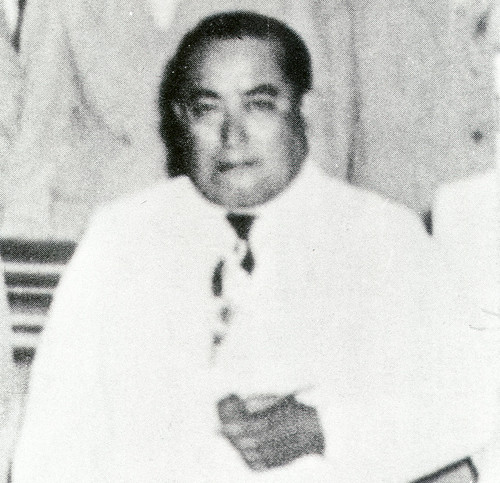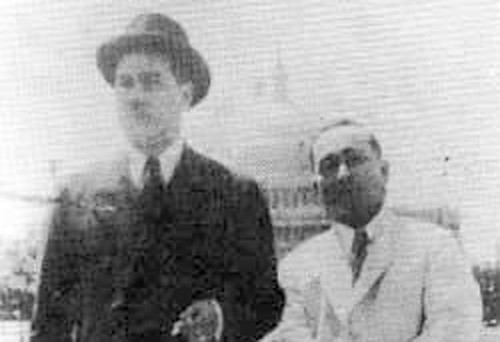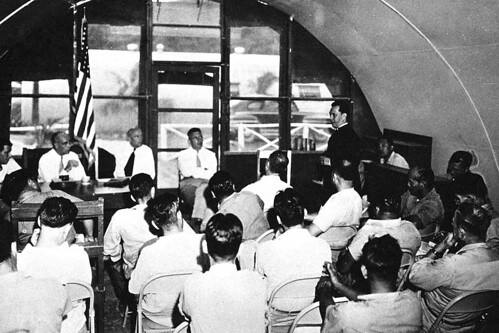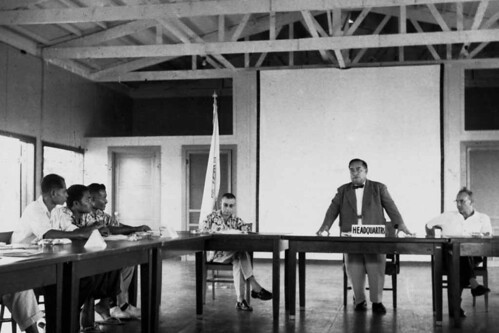Francisco B. Leon Guerrero
Mr. Organic Act
Francisco B. Leon Guerrero (1897 – 1974), also known as “Mr. Organic Act,” was known for his groundbreaking role in advancing the cause of American citizenship for the people of Guam. If there is one person responsible for the attainment of US citizenship by the people of Guam, it is F.B. Leon Guerrero.
A young Leon Guerrero had aspirations to be a lawyer and gained his education through tutors, correspondence courses and the minimal formal higher education available on island. From 1914-1917, he served as the Hågat School principal. Then, from 1918-1932, he worked for the Department of Agriculture as a self-described “machete scientist.”
Early entry into politics
Leon Guerrero was an ardent opponent of what he deemed “Naval absolutism.” He fought for a civil government that did not adhere to military restrictions. One story he frequently told occurred in 1924 when he worked at the agricultural station, in which he refused to stand up at the Naval governor’s command and was sentenced to 15 days of hard labor. Leon Guerrero said he did so because he believed in the US Constitution as it espouses the superiority of civilians over the military.
Leon Guerrero entered formal politics in the wake of Franklin Roosevelt’s election and the subsequent New Deal policies in 1932. As a member of the 2nd Guam Congress, he saw first hand the futility of the Guam Congress passing any resolutions that would lead to American citizenship due to its advisory role.
As America sank deeper into the Depression, US concerns about the financial and military viability of retaining control of the Philippines lead to the signing of the Tydings-McDuffie Act in 1934. This bill granted new independence to the Philippines leaving those in Guam seeking clarification on their political status.
The 2nd Guam Congress sent Leon Guerrero and Baltazar J. Bordallo to lobby in Washington DC for citizenship. There was an island-wide drive to collect donations for the lobbying trip in 1936 with about $6,000 collected. With government funding unavailable, Leon Guerrero sold family land to help pay the estimated $10,000 cost of the trip.
On 10 February 1937 Bill S. 1450 was introduced by Senators Tydings of Maryland and Gibson of Vermont to grant citizenship to the people of Guam. The citizenship bill failed in US Congress because the US Navy Department was opposed to its passage. The question of citizenship would be put on hold until after the war.
Organic Act success
After World War II, Leon Guerrero continued his politics of self-autonomy for the people of Guam by forming the Friends of Guam and the Welfare Party. He was unquestionably the leader on the arduous campaign for the granting of US citizenship to the people of Guam. He endeared himself to America and maintained throughout his life that there was only one “-ism,” and that was “Americanism.”
Success finally came in 21 May 1949, when the Guam Congress funded a two-man committee of Leon Guerrero and Antonio Won Pat to once again lobby for citizenship. This time, the group was aided by sympathetic national press coverage after the Guam Congress walked out to protest their lack of power. President Truman ordered the Interior Department to draft the Organic Act. The passage of the Organic Act made Guam an unincorporated, organized territory. Island residents gained civil government and American citizenship.
Twenty years after enactment of the Organic Act of Guam, US Congress enacted legislation allowing the people of Guam to elect its governor. Before then, the governor was appointed by the president. In 1972, Congress enacted legislation giving Guam a voice in congress through the office of delegate. The US Virgin Islands and Puerto Rico have the same.
After becoming the speaker of the I Mina Tres Na Liheslaturan Guåhan/ the 3rd Guam Legislature in 1955, Leon Guerrero remained active in local politics until 1962 when he had a stroke. Still, the former lawyer continued to dole out legal advice until his death in 1974.
By Nicholas Yamashita Quinata and Tony Palomo
For further reading
Pacific Daily News. “Mr. Organic Act Buried; Eulogy Read at Legislature.” 17 March 1974.
–––. “Mr. Organic Act Dead At Age 76.” 11 March 1974.
Rogers, Robert. Destiny’s Landfall: A History of Guam. Honolulu: University of Hawai`i Press, 1995.




